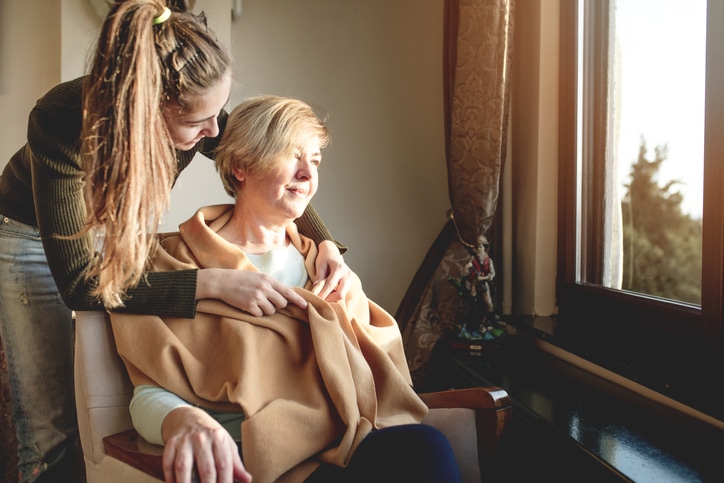Younger onset dementia (beginning before the age of 65) has a devastating impact on the lives of people diagnosed and their families, and many develop complex care needs as their illness progresses, a new study by the Australian Institute of Health and Welfare (AIHW) reveals.
The report, Younger onset dementia: new insights using linked data, builds a detailed picture of people with younger onset dementia, their interactions with health and support services, and pathways to using residential aged care services.
Rather than looking at all people with younger onset dementia, this study focused on 5,400 people who were at a relatively early stage of dementia – as identified by the dispensing of drugs used to treat Alzheimer’s disease – and followed them over time from a similar starting point.
More than half (58 per cent) of the people studied required permanent residential aged care, and 25 per cent of these people were aged under 65 when they entered care.
The AIHW says the report is timely as more people are diagnosed with younger onset dementia and the Australian Government has committed to minimise the number of younger people living in permanent residential aged care.
“Although dementia is considered to be an older person’s disease, the number of Australians living with younger onset dementia is set to increase from 28,000 in 2021 to 39,000 by 2050,” said AIHW spokesperson, Dr Fleur de Crespigny.
“The experiences and needs of Australians living with younger onset dementia (and their carers) are often different from those of older people. People with younger onset dementia often retain good physical health, which can affect the suitability of dementia services that are targeted at older people.”
In the absence of age-appropriate options, people with younger onset dementia may need to enter residential aged care.
The report also identified those with younger onset dementia using respite residential aged care, which can give people with dementia and their carers a break.
A third of people with younger onset dementia who went on to enter permanent residential aged care used residential respite care.
Other research shows 45 per cent of people of all ages access respite care before they enter permanent care, suggesting that people with younger onset dementia may be under-using these services, Dr de Crespigny said.
Entry to permanent residential aged care is often accompanied by a change in health service and medicine use for those with younger onset dementia.
The dispensing of antipsychotic drugs increased from 44 per cent to 63 per cent of people in the first six months after entry to permanent residential aged care. The dispensing of antidepressants also increased from 56 per cent to 62 per cent of people.
Dr de Crespigny noted the importance of providing accessible dementia services for Australians from culturally and linguistically diverse (CALD) backgrounds. Understanding the language background of people with dementia is particularly important, as people often use their first language more predominantly as their dementia progresses.
In 2016, one-quarter (26 per cent) of people with younger onset dementia spoke a language other than English at home, and one in 10 (9 per cent) spoke English not well or not at all (compared with 22 per cent and 4.4 per cent of Australians of a similar age).
People who develop dementia while still working may face a sudden or early retirement.
In 2016, people with younger onset dementia were six times less likely to be employed than all Australians of the same age (7.4 per cent compared with 46 per cent, ages 60-64).
The report found a high proportion of people with younger onset dementia received Centrelink income support.
By the fourth year of the study, 71 per cent of people living with younger onset dementia received a Centrelink payment, primarily the Disability Support Pension (36 per cent) and Age Pension (29 per cent).
“Given most dementia research focuses on older people, there is a need for better evidence to inform policy and service responses to support younger people with dementia,” Dr de Crespigny said.
The study used linked data from the National Integrated Health Services Information Analysis Asset (NIHSI-AA) and the Multi-Agency Data Integration Project (MADIP).
“The use of linked data in today’s report highlights its importance in providing a more complete picture of dementia in Australia. We will undertake further work to provide updated information on dementia in Australia and its impact on Australia’s health and aged care system,” Dr de Crespigny said.
The Australian Government has committed to minimising the need for younger people to live in aged care facilities (including younger people with dementia). Progress towards the targets in the Younger People in Residential Aged Care (YPIRAC) Strategy 2020–25 is being tracked through the Younger people in residential aged care dashboard on the AIHW’s GEN aged care data website, also released today.
The Government is reducing the use of restrictive practices. This includes implementing the recommendations of the Aged Care Clinical Advisory Committee to reduce the use of chemical restraints (such as antipsychotic medications) in aged care settings.



